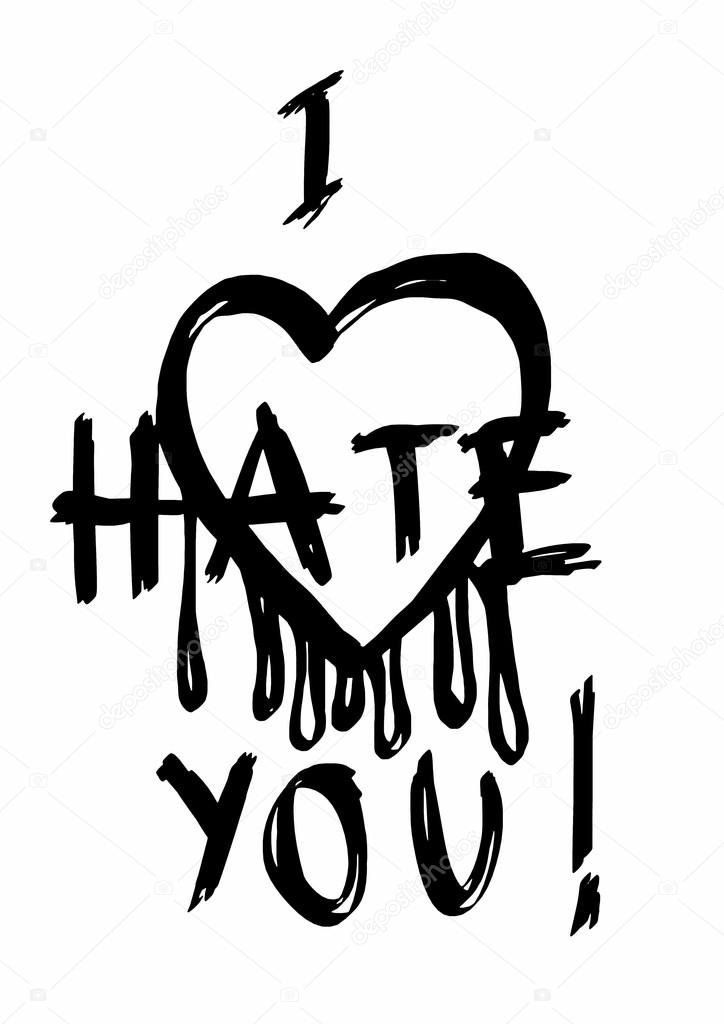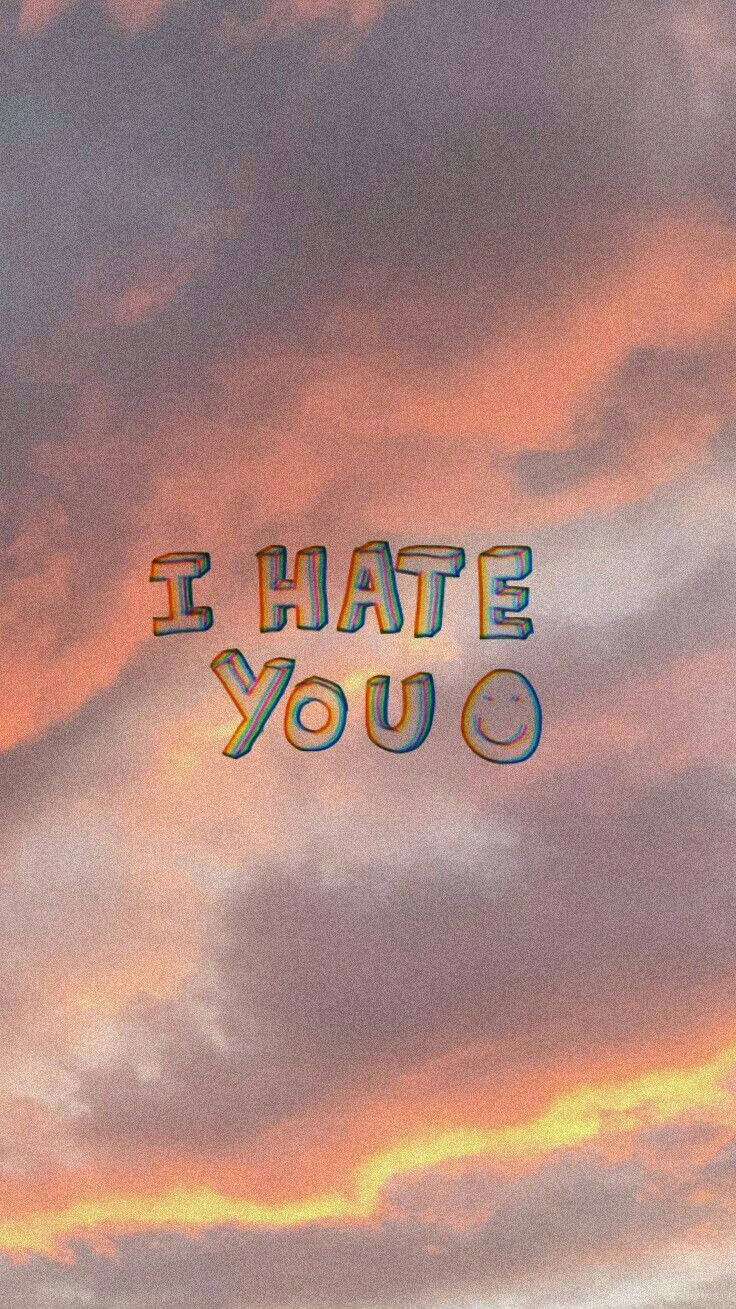The phrase "hawk hate you" has gained significant attention in recent times, especially within online communities and discussions. It represents a broader sentiment often tied to rivalry, competition, or perceived animosity. Whether it's about birds of prey, sports teams, or even cultural references, the term carries weight and intrigue. In this article, we delve deep into what "hawk hate you" truly means, its origins, and its implications in various contexts.
From a biological perspective, hawks are revered for their strength, precision, and hunting prowess. However, this admiration can sometimes turn into fear or resentment, especially when their presence disrupts human activities or other wildlife. Understanding the nuances behind "hawk hate you" requires examining both the literal and metaphorical meanings of the phrase.
Throughout history, hawks have symbolized different things across cultures—sometimes admiration, other times hostility. This duality is what makes the topic so fascinating. As we explore further, you'll uncover the layers behind this phrase and how it resonates with people today.
Read also:Pastor Frankely Vaacutesquez A Visionary Leader In Faith And Community
Table of Contents
- Introduction
- Hawk Biology: Understanding These Majestic Birds
- Cultural Symbolism of Hawks
- Hawks in Sports: The Spirit of Competition
- The Metaphorical Meaning of "Hawk Hate You"
- Psychological Perspective on Hatred
- Statistical Insights on Public Perception
- Famous Incidents Involving Hawks
- Media Representation of Hawks
- Conclusion
Hawk Biology: Understanding These Majestic Birds
Hawks are raptors known for their keen vision, sharp talons, and incredible flying abilities. They belong to the family Accipitridae and are found worldwide, adapting to diverse ecosystems. These birds play a crucial role in maintaining ecological balance by controlling rodent populations.
Physical Characteristics
- Hawks have large wingspans, enabling them to soar effortlessly.
- They possess exceptional eyesight, capable of spotting prey from great distances.
- Sharp beaks and talons make them formidable hunters.
Despite their majestic qualities, hawks are sometimes viewed negatively due to their predatory nature. Farmers, for instance, may see them as threats to livestock or crops. This conflict between humans and wildlife contributes to the sentiment of "hawk hate you."
Cultural Symbolism of Hawks
In many cultures, hawks hold symbolic significance. Native American tribes often associate hawks with courage, vision, and freedom. In ancient Egypt, the hawk was linked to Ra, the sun god, symbolizing divinity and power.
Mythology and Legends
- In Greek mythology, Zeus transformed himself into a hawk to represent swiftness and strength.
- Many African tribes view hawks as messengers of the gods, bringing important messages from the spiritual realm.
However, not all interpretations are positive. Some cultures see hawks as omens of bad luck or danger, which could explain why phrases like "hawk hate you" resonate with certain groups.
Hawks in Sports: The Spirit of Competition
Sports teams often adopt hawk mascots to embody tenacity and aggression. The Atlanta Hawks, for example, use the imagery of a hawk to inspire their players and fans. In competitive environments, rivalries can become intense, leading to sentiments such as "hawk hate you."
Fan Rivalries
- Die-hard fans of opposing teams might use the phrase sarcastically or aggressively during matches.
- Social media platforms amplify these rivalries, where users frequently exchange taunts using phrases like "hawk hate you."
While this rivalry adds excitement to sports, it's essential to remember the spirit of fair play and mutual respect.
Read also:Mason Ray Parker The Rising Star In The World Of Entertainment
The Metaphorical Meaning of "Hawk Hate You"
Beyond its literal context, "hawk hate you" can also be interpreted metaphorically. It might refer to situations where someone feels targeted, criticized, or disliked by others. This could apply to personal relationships, workplace dynamics, or even societal interactions.
Examples in Everyday Life
- In school settings, students might feel bullied or isolated, leading them to express feelings of being "hated" by peers.
- On professional platforms, employees could perceive animosity from colleagues, fostering a toxic work environment.
Addressing these emotions requires empathy and open communication. Understanding the root causes of such sentiments can lead to healthier interpersonal relationships.
Psychological Perspective on Hatred
Hatred is a complex emotion that stems from various psychological factors. According to research published in the Journal of Personality and Social Psychology, hatred often arises from perceived threats, misunderstandings, or unresolved conflicts.
Managing Negative Emotions
- Practicing mindfulness and self-reflection can help individuals process negative emotions constructively.
- Therapeutic interventions, such as cognitive-behavioral therapy (CBT), offer effective strategies for managing hatred and fostering positive relationships.
By understanding the psychological underpinnings of hatred, we can work towards creating more compassionate and inclusive communities.
Statistical Insights on Public Perception
Data from surveys conducted by organizations like the Audubon Society reveal interesting insights about public perceptions of hawks. For instance, while 70% of respondents admire hawks for their beauty and skills, 30% express concerns about their impact on local ecosystems.
Key Findings
- Urban areas report higher incidences of human-wildlife conflicts involving hawks.
- Education initiatives aimed at promoting coexistence have shown promising results in reducing negative perceptions.
These statistics highlight the importance of balanced approaches when addressing issues related to wildlife management and conservation.
Famous Incidents Involving Hawks
Throughout history, there have been notable incidents involving hawks that captured public attention. One famous case is the story of "Sam," a red-tailed hawk that nested near a busy airport in New York City. Despite initial concerns about flight safety, Sam became a beloved local celebrity.
Lessons Learned
- Incidents like Sam's demonstrate the potential for positive human-wildlife interactions when handled responsibly.
- Media coverage plays a significant role in shaping public opinion and influencing conservation efforts.
By learning from these experiences, we can develop strategies to mitigate conflicts and promote harmony between humans and wildlife.
Media Representation of Hawks
Media portrayals of hawks vary widely, ranging from heroic depictions in nature documentaries to villainous roles in fiction. Movies like "The Falcon and the Winter Soldier" feature hawks as symbols of strength and resilience, while animated films sometimes portray them as antagonists.
Impact on Public Perception
- Positive media representation can foster appreciation and respect for hawks.
- Negative portrayals risk reinforcing stereotypes and perpetuating fear or hatred.
It's crucial for media creators to approach these representations thoughtfully, ensuring they contribute positively to public understanding and attitudes.
Conclusion
In summary, the phrase "hawk hate you" encapsulates a range of emotions and perspectives related to hawks, competition, and interpersonal relationships. By exploring its biological, cultural, and psychological dimensions, we gain a deeper appreciation for the complexities surrounding this phenomenon.
We invite you to share your thoughts and experiences in the comments section below. Engaging in constructive dialogue helps us learn from one another and build stronger, more empathetic communities. Additionally, don't forget to explore other articles on our website for more insightful content!


